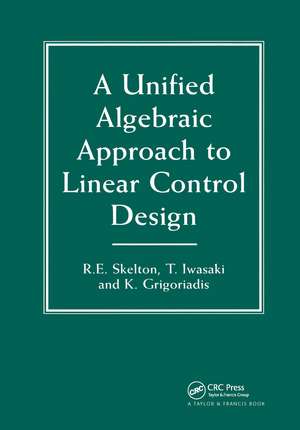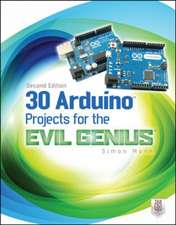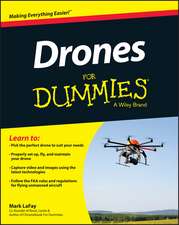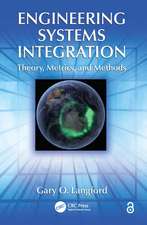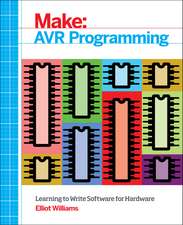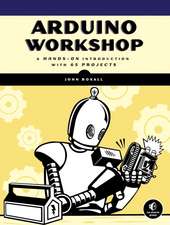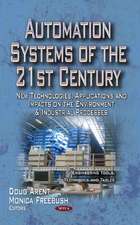A Unified Algebraic Approach To Control Design: Series in Systems and Control
Autor Robert E. Skelton, T. Iwasaki, Dimitri E. Grigoriadisen Limba Engleză Hardback – 17 oct 1997
Preț: 1009.55 lei
Preț vechi: 1231.17 lei
-18% Nou
Puncte Express: 1514
Preț estimativ în valută:
193.20€ • 209.79$ • 162.29£
193.20€ • 209.79$ • 162.29£
Carte tipărită la comandă
Livrare economică 23 aprilie-07 mai
Preluare comenzi: 021 569.72.76
Specificații
ISBN-13: 9780748405923
ISBN-10: 0748405925
Pagini: 304
Ilustrații: 1
Dimensiuni: 174 x 246 x 22 mm
Greutate: 0.72 kg
Ediția:1
Editura: CRC Press
Colecția CRC Press
Seria Series in Systems and Control
Locul publicării:Boca Raton, United States
ISBN-10: 0748405925
Pagini: 304
Ilustrații: 1
Dimensiuni: 174 x 246 x 22 mm
Greutate: 0.72 kg
Ediția:1
Editura: CRC Press
Colecția CRC Press
Seria Series in Systems and Control
Locul publicării:Boca Raton, United States
Public țintă
ProfessionalCuprins
1. Introduction 2. Linear Algebra Review 3. Analysis of First-order Information 4. Second-order Information in Linear Systems 5. Covariance Controllers 6.Covariance Upper Boundary Controllers 7. H-Controllers 8. Model Reduction 9. Unified Perspective 10. Projection Methods 11. Successive Centring Methods 12. A: Linear Algebra Basics 13. B: Calculus of Vectors and Matrices 14. C: Balanced Model Reduction
Descriere
There are many books on linear systems and control, many of them taking a specific tool or method as the focus of learning and understanding them. Indeed, many of the tools and methods adopted have their own mature and stable literature. This book provides a unifying framework in which to view and apply an understanding of the many challenges of linear systems design, namely linear systems algebra.
The authors develop their description of linear systems algebra in the context of some familiar debates in the systems and control field: frequency domain versus state space methods; deterministic versus stochastic methods; control versus signal processing; modelling versus control design; scalar versus multiobjective methods; performance versus stability; and choosing a design space. Throughout the emphasis remains on how the linear systems algebra approach can be used to look at large numbers of classical and modern control problems.
The authors develop their description of linear systems algebra in the context of some familiar debates in the systems and control field: frequency domain versus state space methods; deterministic versus stochastic methods; control versus signal processing; modelling versus control design; scalar versus multiobjective methods; performance versus stability; and choosing a design space. Throughout the emphasis remains on how the linear systems algebra approach can be used to look at large numbers of classical and modern control problems.
